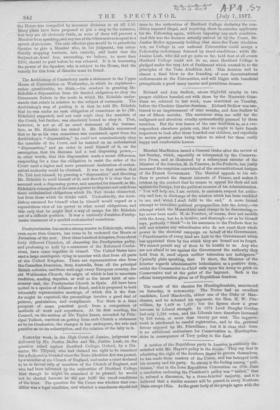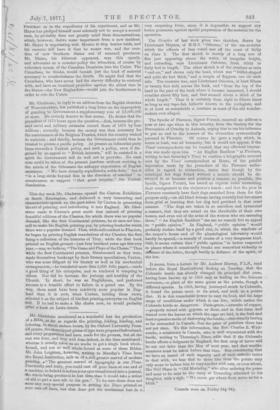A section of the Republican party in America is evidently
dis- satisfied with Mr. Hayes's policy in the South. They say that in admitting the right of the Southern States to govern themselves, he has made them masters of the Union, and has betrayed both his country and his party, So strong is the feeling among " poli- ticians," that in the Iowa Republican Convention on 27th June a resolution endorsing the President's policy was 4, tabled," that is, refused a discussion, by a three-fourths' majority, and it is believed that a similar censure will be passed in every Northern State except Ohio. As the great body of the people agree with the
President as to the expediency of his experiment, and as Mr. Hayes has pledged himself most solemnly not to accept a second term, ho probably does not greatly mind these demonstrations, which, however, derive some importance from a new incident. Mr. Hayes is negotiating with Mexico to stop border raids, and his enemies will have it that he means war, and the crea- tion of new Southern States out of annexed provinces. Mr. Blaine, his bitterest opponent, says this openly, and advocates as a counter-policy the attraction, of course by voluntary means, of the Canadian Dominion into the Union. The Canadians, he thinks, would furnish just the kind of material necessary to counterbalance the South. He might find that the Canadians, who have never had the slavery difficulty to contend with, and have an irrational prejudice against the ablest race in the States—the New Englanders—would join the Southerners in order to rule the Union.



































 Previous page
Previous page